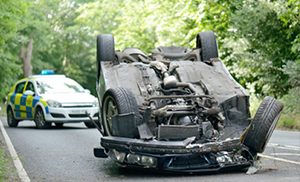What is Schizophrenia?
Schizophrenia: An Illness of the Brain
Schizophrenia is an illness affecting the brain and rooted within the biological functions of the brain cells.1,2 It is a very complex illness which is still not completely understood, although it has been studied in detail for over 100 years since it was first described by Dr Emil Krapelin in 1887. It tends to strike most often in late teens and early twenties, slightly earlier in men than in women, although late onset illness can occur as late as the 70s. Schizophrenia before puberty is very rare.11
The word schizophrenia literally means a “fragmented mind”. Contrary to popular opinion it does not mean a split personality: this is a separate condition altogether known as dissociative identity disorder and is not related to schizophrenia. A person with schizophrenia does not have several different distinct personalities active in their psyche, a Jekyll and Hyde personality, as many people believe but rather the various parts and functions of their mind are often disconnected and confused.6
It is now thought by most scientists that schizophrenia is caused by abnormalities in certain brain hormones particularly one called Dopamine. These hormones are responsible for thought processes and an excess or shortage can cause thinking to become disturbed. This theory now dominates professional thinking on schizophrenia and is probably the most plausible of all the modern explanations. After all why should the brain not become ill: it is after all just another organ of the body and as such is as much prone to illness as say the liver or kidneys.
Are People with Schizophrenia Dangerous?

Suicide by people with schizophrenia accounts for as many deaths in the UK as traffic collisions (Image: Shutterstock)
This is probably the most frequently asked question by the public about schizophrenia and the one about which there is considerable misunderstanding. What the evidence shows us is that people with schizophrenia are at considerably higher risk of death by suicide than the general population and are also more at risk of violent behaviour and sexually disinhibited behaviour. However provided that adequate psychiatric care is provided and good supervision of those in crisis is carried out these risks can be reduced to levels no higher than the general population.

Genetics affect the chances of developing schizophrenia. (Image: Ekaterina Shtern on Shutterstock)
What Causes Schizophrenia?

The impact of an episode of schizophrenia should not be under-estimated. It is often severe and disabling (Image: Images.etc on Shutterstock)
The causes of schizophrenia have been the subject of extensive debate for over a hundred years but it is generally accepted by doctors today that it is the result of predisposing genetic or obstetric (complications during pregnancy or birth) factors combining with some stress event later in life which triggers the first episode. So if you have a relation with the condition or had a difficult birth you will be more likely to suffer from it yourself.
However, over the decades there have been many baseless theories about the causes of schizophrenia which have led us up blind alleys. These theories have often reflected the social thinking and attitudes of the time. For instance the Edwardians were convinced that it was masturbation that caused the condition and for a large part of the 20th century poor parenting was blamed by many psychologists.7,8 Today with society’s increasingly intense focus on childhood abuse it is argued by some that childhood adversity may be the cause. However others have pointed out that if this were the case then societal traumas like the holocaust or blitz would have led to epidemics of schizophrenia and that was not the case. There is more about the causes of schizophrenia in our Information Sheet.
How Does Schizophrenia Affect people?
Schizophrenia is described by psychiatrists as a psychotic illness and it exhibits itself in three ways: negative symptoms such as lethargy, apathy and social withdrawal , positive symptoms such as hallucinations and delusions and cognitive symptoms such as impaired memory. Either or all three may be present in an individual at the same time.3 Common types of delusions are paranoid or religious ones whilst hallucinations often manifest themselves as audible voices.
Schizophrenia is a severe condition in which the sufferer may completely lose touch with reality, become socially withdrawn, be unable to work or study and stop looking after themselves. Their behaviour may become bizarre or sometimes dangerous.

Sadly many people with schizophrenia in the UK still end up living on the streets or in prison. (Image: Photographee.eu on Shutterstock)
An acute episode of schizophrenia may last weeks or months but the condition is usually disabling over a period of years and in its chronic course may, in a minority of sufferers, last a lifetime. However the majority of sufferers do show a substantial improvement following treatment and will return eventually to a fairly high level of functioning. Our Information Sheet on Symptoms goes into more detail about this. Whilst most will enjoy a substantial recovery in their functioning, social outcomes such as employment in the UK remain stubbornly resistant to any improvement and this factor along with the possibility of residual symptoms and cognitive impairments such as memory loss result in few people with schizophrenia enjoying a long term career. And sadly our prisons and homeless hostels still provide the only sanctuary available to many sufferers.
Who Gets Schizophrenia?

Schizophrenia is disproportionately represented amongst urban populations.
There is no type of personality more prone to schizophrenia than another, nor does schizophrenia affect one racial or social group more than others. It is a condition that is present in all countries and types of societies in the world and affects all social classes. Both men and women are affected by schizophrenia although it is more common and more severe in men and men tend to respond less well to medication.12 Schizophrenia is disproportionately represented amongst the urban populations of the world and immigrant populations also show a higher incidence. It is predominantly a condition of the young, with three quarters of all diagnoses being made between ages 16 and 25. For more about this see our Information Sheet Who Is At Risk.
Hard facts as to the number of people living with schizophrenia in the UK are hard to come by and range from over 250,000 people4 to about 400,000 people5 and whilst the clinical outcomes are generally quite good the social outcomes remain poor.
Treatments for Schizophrenia
Treatment in the NHS is mainly by the use of antipsychotic medications and talking therapies in combination. Modern antipsychotics alone are very effective against the positive symptoms such as hallucinations and delusions but much less so against the negative ones such as apathy and withdrawal or the cognitive symptoms. Combining talking therapies and antipsychotic medications gives the best chance of a good recovery.2 Since 2009 the National Institute of Clinical Excellence (NICE) has recommended that all adults suffering with schizophrenia should be offered both cognitive behavioural therapy and family intervention in addition to medication.10 Our information sheet on Modern Treatments has more detail on this aspect.
References
1. Reveley A. 2006, Your Guide to Schizophrenia, Hodder Arnold, P1.
2. Author’s personal experiences.
3. Reveley A. 2006, Your Guide to Schizophrenia, Hodder Arnold, P4.
4. Schizophrenia: Facts and Statistics, http://www.schizophrenia.com/szfacts.htm, viewed on line 17th March 2013.
5. National Institute for Health and Clinical Excellence, Quality and Outcomes Framework, Briefing Paper, 2009, http://www.nice.org.uk/nicemedia/live/13088/50094/50094.pdf, Viewed on line 17th March 2013.
6. Snyder K, 2007, Me, Myself and Them, A Firsthand Account of One Young Person’s Experience With Schizophrenia, Oxford University Press. P9.
7. Leff J, 2001, The Unbalanced Mind, Phoenix, P41.
8. Fuller Torrey E, 2013, Surviving Schizophrenia, Harper Perennial, P144 -145
9. Warner R, 2000, The Environment of Schizophrenia, Brunner-Routledge, P73.
10. NICE Clinical Guideline 82, 2009, Schizophrenia. Core Interventions in the Treatment and Management of Schizophrenia in Adults in Primary and Secondary Care.
11. Lintner B, 1996, Living with Schizophrenia, Vermilion, P12-13.
12 Fuller Torrey E, 2013, Surviving Schizophrenia, Harper Perennial, P101
Copyright © May 2017 LWS (UK) CIC.







